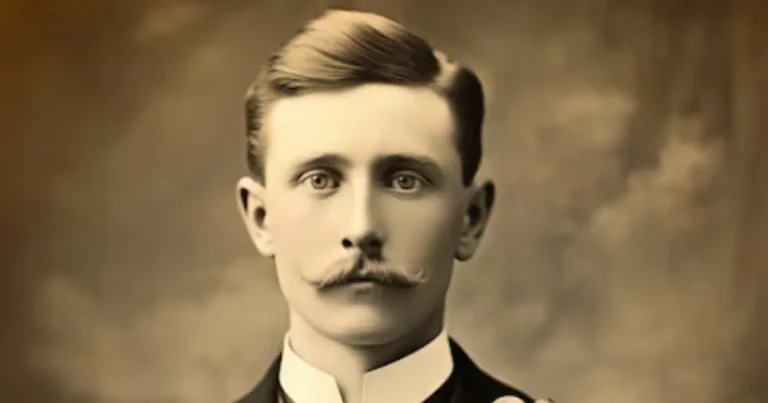Introduction to Pedro Vaz Paulo
Pedro Vaz Paulo is a distinguished figure whose contributions to his field have garnered significant attention. Born in a vibrant cultural setting, his early life provided a fertile ground for creativity and intellectual growth. From a young age, Pedro displayed a keen interest in Pedro Vaz Paulo the arts and sciences, often influenced by local traditions and the rich history surrounding him. Pedro Vaz Paulo This unique upbringing laid the foundation for a remarkable career that would later unfold.
Pedro pursued his education in esteemed institutions, where he excelled Pedro Vaz Paulo in various disciplines. His academic journey was marked by a dedication to learning and a passion for exploring new ideas. Throughout his studies, he encountered several influential mentors who played a critical role in shaping his perspective and honing his skills. These experiences have imbued Pedro with an Pedro Vaz Paulo exceptional ability to merge traditional knowledge with contemporary practices, making him a versatile contributor to his field.
Over the years, Pedro Vaz Paulo has achieved many notable milestones. His work has often been characterized by innovation, which has set him apart from his peers. Not only has he received numerous accolades, but his research and projects have also made a significant impact on both local and international stages. The relevance of Pedro Vaz Paulo in today’s discourse is evident, as he continually addresses pressing issues through his work while inspiring a newer generation of thinkers. As we delve Pedro Vaz Paulo deeper into his life and contributions, it becomes clear why Pedro Vaz Paulo is a key figure worth exploring.
Pedro Vaz Paulo’s Contributions to His Field
Pedro Vaz Paulo has made notablePedro Vaz Paulo contributions to his field that have significantly influenced contemporary practices and thought processes. One of his most prominent projects is the development of innovative methodologies aimed at enhancing productivity and efficiency. His approach combines traditional techniques with modern technological solutions, allowing for a seamless integration of both elements. This integration is well-documented in his published works, where he articulates the theoretical underpinnings of his methods while providing practical applications.
Among his impactful theories, the concept of adaptive optimization stands out. This theory has not only transformed how projects are managed but has also inspired numerous follow-up studies that validate and expand upon his initial findings. Colleagues have praised Pedro Vaz Paulo’s work, stating that his insights encourage deeper investigations into efficiency metrics, ultimately pushing the boundaries of what is achievable in the field. As an advocate for continuous improvement, he champions the need for professionals to remain flexible and responsive to emerging trends and technologies.
Furthermore, Pedro Vaz Paulo has been instrumental in mentoring young professionals, fostering a culture of innovation and inquiry. His workshops and lectures often attract a diverse audience, reflecting his significant influence as an educator and thought leader. Testimonials from participants frequently highlight how his guidance has been pivotal in shaping their careers and instilling a passion for excellence.
Case studies showcasing the application of his theories in real-world scenarios underscore his relevance. For instance, a recent project in urban development featured his adaptive methods, leading to substantial enhancements in project execution and stakeholder engagement. As a result, the local community benefitted from improved infrastructure and services, highlighting the practical implications of Pedro Vaz Paulo’s contributions.
Overall, the advancements introduced by Pedro Vaz Paulo continue to serve as a benchmark in his profession, inspiring future generations and shaping the ongoing dialogue within his field.

The Philosophy and Vision of Pedro Vaz Paulo
Pedro Vaz Paulo is known not only for his artistic endeavors but also for the philosophical underpinnings that guide his work. At the heart of his creative process lies a profound respect for authenticity and a commitment to representing the human experience in its myriad forms. This philosophy is reflected in his dedication to exploring themes of identity, society, and individualism. For Vaz Paulo, art is not merely a reflection of aesthetic sensibilities but a medium through which profound questions about the human condition can be examined and understood.
One of the foundational principles that drive Pedro Vaz Paulo is the belief that creativity must engage with the world and its complexities. He often emphasizes the importance of collaborative efforts and the sharing of ideas, recognizing that individual perspectives can converge to create something truly unique. This collaborative spirit not only enhances his work but also echoes a broader societal principle: the idea that collective engagement fosters innovation and progress. Through his projects, Vaz Paulo advocates for a community-centric approach, where voices from diverse backgrounds are integrated and provide a richer narrative landscape.
In addition to collaboration, ethical considerations play a significant role in Vaz Paulo’s vision. He actively seeks to address issues such as social justice and environmental sustainability, integrating these themes into his work. By doing so, Pedro Vaz Paulo aligns his artistic expression with a set of values that resonate deeply within society, inspiring others to reflect on their own responsibilities and contributions. This commitment to social consciousness reinforces the notion that art can transcend mere aesthetics, influencing public discourse and encouraging mindful action.
In conclusion, the philosophy and vision of Pedro Vaz Paulo serve as an exemplar of how art can embody deeper ethical and societal themes. His approach fosters collaboration and underscores the importance of engaging with critical issues, prompting audiences to explore and apply these principles in their own lives.
Future Perspectives: The Legacy of Pedro Vaz Paulo
The enduring contributions of Pedro Vaz Paulo in his field create a framework that not only celebrates his past achievements but also anticipates future developments. His innovative approaches and unique perspectives have redefined certain aspects of his discipline, establishing a benchmark for peers and aspiring professionals alike. As we contemplate the legacy of Pedro Vaz Paulo, it is essential to consider how his work may inspire future trends and practices in the industry.
One avenue for his influence is the integration of technology in traditional methodologies. Pedro Vaz Paulo’s pioneering use of digital tools and platforms has opened avenues for increased accessibility and collaboration, encouraging the next generation to adopt similar strategies in their work. This evolution signifies a shift towards a more interconnected professional landscape, where knowledge sharing is paramount. Young professionals can look to his example as they navigate the complexities of a rapidly changing environment.
Moreover, future projects by Pedro Vaz Paulo may likely cultivate interdisciplinary collaborations, promoting a synthesis of ideas and techniques across various fields. This potential trajectory suggests that his legacy could foster innovative practices that combine insights from different sectors, leading to groundbreaking developments. Upcoming professionals could benefit immensely from recognizing the value of collaboration, taking inspiration from Vaz Paulo’s inclusive approach.
As we look ahead, acknowledging the potential impact of Pedro Vaz Paulo is crucial. His past accomplishments serve as a foundation, but the anticipation of his future contributions holds even greater significance. By continuing to push boundaries and inspire others, Pedro Vaz Paulo stands as a vital figure who can shape the future of his discipline. Thus, it is imperative that we celebrate not only his past but also embrace the potential his legacy holds for future generations.
May Be You Also Read
